This article was co-authored by Lisa Bryant, ND. Dr. Lisa Bryant is Licensed Naturopathic Physician and natural medicine expert based in Portland, Oregon. She earned a Doctorate of Naturopathic Medicine from the National College of Natural Medicine in Portland, Oregon and completed her residency in Naturopathic Family Medicine there in 2014.
There are 9 references cited in this article, which can be found at the bottom of the page.
This article has been viewed 54,682 times.
Honey isn't just delicious—it may actually help with ailments like a cough, sore throat, or seasonal allergies. If you have a cold, take a small amount of honey each day until your symptoms are gone. If you have seasonal allergies, start taking honey before your symptoms start to help minimize them. Keep reading for more tips on how to get the most out of taking honey!
Steps
Expert Q&A
Did you know you can get expert answers for this article?
Unlock expert answers by supporting wikiHow
-
QuestionWill putting honey in hot oatmeal kill the enzymes in the honey?
 Lisa Bryant, NDDr. Lisa Bryant is Licensed Naturopathic Physician and natural medicine expert based in Portland, Oregon. She earned a Doctorate of Naturopathic Medicine from the National College of Natural Medicine in Portland, Oregon and completed her residency in Naturopathic Family Medicine there in 2014.
Lisa Bryant, NDDr. Lisa Bryant is Licensed Naturopathic Physician and natural medicine expert based in Portland, Oregon. She earned a Doctorate of Naturopathic Medicine from the National College of Natural Medicine in Portland, Oregon and completed her residency in Naturopathic Family Medicine there in 2014.
Licensed Naturopathic Physician
-
QuestionDoes honey help reduce upset stomach symptoms?
 Lisa Bryant, NDDr. Lisa Bryant is Licensed Naturopathic Physician and natural medicine expert based in Portland, Oregon. She earned a Doctorate of Naturopathic Medicine from the National College of Natural Medicine in Portland, Oregon and completed her residency in Naturopathic Family Medicine there in 2014.
Lisa Bryant, NDDr. Lisa Bryant is Licensed Naturopathic Physician and natural medicine expert based in Portland, Oregon. She earned a Doctorate of Naturopathic Medicine from the National College of Natural Medicine in Portland, Oregon and completed her residency in Naturopathic Family Medicine there in 2014.
Licensed Naturopathic Physician
-
QuestionDoes taking honey in warm water make the voice sound good or make the voice sound pleasant?
 Lisa Bryant, NDDr. Lisa Bryant is Licensed Naturopathic Physician and natural medicine expert based in Portland, Oregon. She earned a Doctorate of Naturopathic Medicine from the National College of Natural Medicine in Portland, Oregon and completed her residency in Naturopathic Family Medicine there in 2014.
Lisa Bryant, NDDr. Lisa Bryant is Licensed Naturopathic Physician and natural medicine expert based in Portland, Oregon. She earned a Doctorate of Naturopathic Medicine from the National College of Natural Medicine in Portland, Oregon and completed her residency in Naturopathic Family Medicine there in 2014.
Licensed Naturopathic Physician
References
- ↑ https://www.ncbi.nlm.nih.gov/pmc/articles/PMC5424551/
- ↑ https://www.mayoclinic.org/diseases-conditions/common-cold/expert-answers/honey/faq-20058031
- ↑ https://www.mayoclinic.org/diseases-conditions/common-cold/in-depth/cold-remedies/art-20046403
- ↑ https://www.mayoclinic.org/diseases-conditions/common-cold/expert-answers/honey/faq-20058031
- ↑ https://www.mayoclinic.org/diseases-conditions/common-cold/expert-answers/honey/faq-20058031
- ↑ https://www.ncbi.nlm.nih.gov/pmc/articles/PMC6074882/
- ↑ https://acaai.org/resources/connect/ask-allergist/will-honey-relieve-my-seasonal-allergies
- ↑ https://healthcare.utah.edu/healthfeed/postings/2017/06/honey-allergies.php
- ↑ https://www.ncbi.nlm.nih.gov/pmc/articles/PMC6074882/
About This Article
Honey has many medicinal properties, and you can take it in several ways to improve your health. For example, when you're not feeling well, eat a spoonful of honey a day to soothe your throat and ease your cough. If you prefer, add honey to a warm drink, like tea or hot water. No matter how you take your honey, try having some before bed to make sleeping more comfortable. If you’re using honey to prevent allergies, make sure to buy raw organic honey made in your area since you’ll want trace amounts of local pollen to acclimate your immune system. In order to build your tolerance, eat 1 to 2 teaspoons each day. To learn how to recognize the signs of an allergic reaction to honey, keep reading!
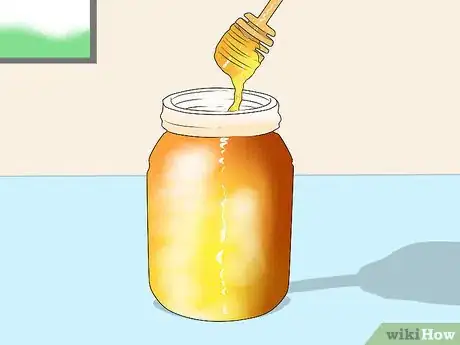
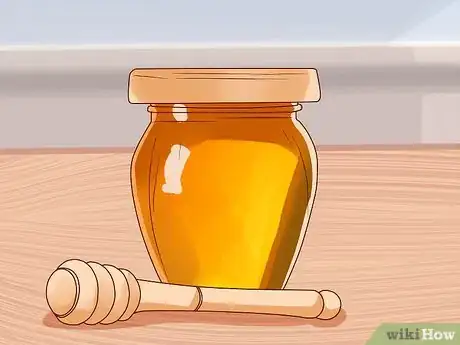




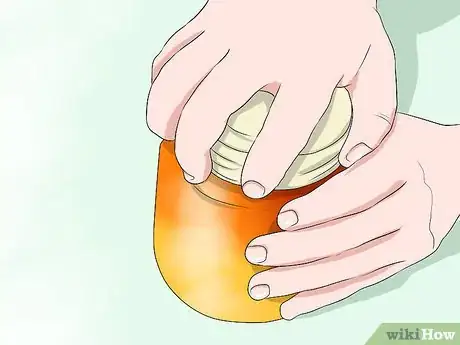
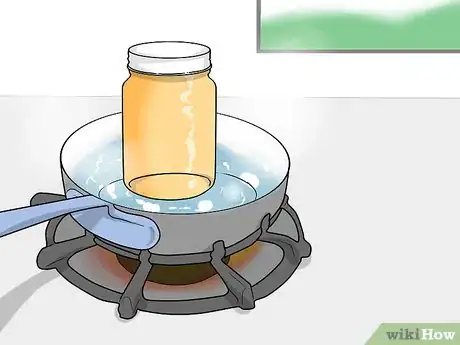
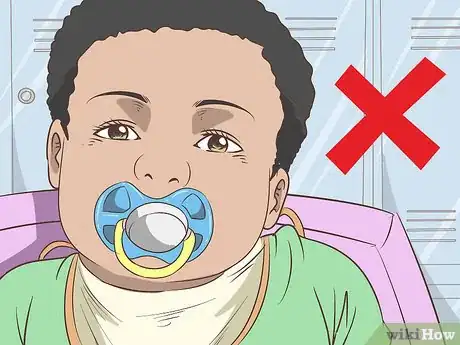
-Step-7-Version-3.webp)
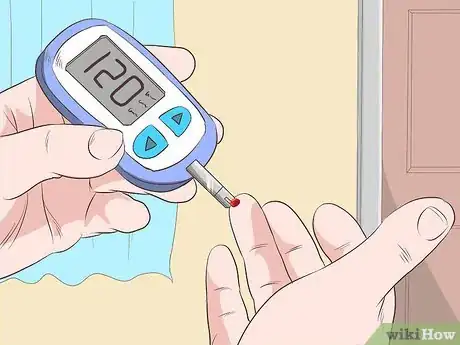





















































Medical Disclaimer
The content of this article is not intended to be a substitute for professional medical advice, examination, diagnosis, or treatment. You should always contact your doctor or other qualified healthcare professional before starting, changing, or stopping any kind of health treatment.
Read More...